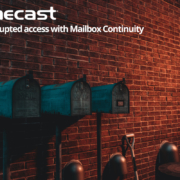Attacks on WordPress are common, learn how to deal with them.
As internet implementation is on a swift rise, cybercrime is at an all-time high. According to a report, Google blacklists around 10,000+ websites every day for malware, and more than 50,000 for phishing every week!
As a matter of fact, WordPress operates 34% of all websites worldwide, and this is the reason perhaps why it is always a predominant target for hackers and other cybercriminals.
Why do you ask?
Let us explain.
All a hacker needs to do is find a weakness, and this could serve as a gateway to access thousands of websites using the same loophole.
But it should not happen to you.
Here, in this article, we will talk about the universal WordPress attacks and will explore the solutions that will keep your website safeguarded.
Most Common WordPress Attacks
1. Plugin exposures
Plugins enhance the functionalities of a WordPress website on the go, and this is the reason why no web creator thinks twice before installing them on their website. This is where things tend to go wrong.
Getting attacked through plugins is ordinary. There is an infinite number of plugins available online by an array of developers. It is difficult to gauge the concealed intentions of each of these plugins. This is how they make your website prone to attacks.
Solution
We appreciate that avoiding plugins altogether is not an option, but we will extremely recommend you install as few as possible. Further, if a plugin is not active, it is better to uninstall it. Also, do not forget to update your plugins from time to time to rule out any possible loopholes.
2. Brute Force
These attacks are usually initiated by bots who try to access your website through guesswork. They will try as many username and password patterns to log in to your website until they find the right one.
Solution
Quite unsurprisingly, choose your usernames and passwords carefully. Avoid going with common ones like – pas55word, a combination of your name and birth year and so on. These are simple to guess, and by keeping such passwords, you are only favouring the hackers.
Additionally, you should also contemplate activating two-factor authentication to avoid any unforeseen events.
3. WordPress and Theme Susceptibilities
As we already discussed, all that a hacker needs are one single hiccup in the WordPress and theme and they will exploit it to enter into your website.
Solution
Both the WordPress platform and WordPress themes roll out their updated versions from time to time. You guess it right – all you need to do is make the most out of these updates by updating your WordPress core and themes daily.
4. Hosting Vulnerabilities
Your web hosting is another critical factor that determines the security of your website. Your web hosting might make you exposed or the software that they use might not be secure enough.
Solution
It is very recommended to go with a secure and reputed web hosting solutions provider company. Check out their reviews, and performance before making a final judgment.
The Next Steps
Securing your website is not overly complicated. Simply, keep doing the right things, and close all the backdoors. As the best practice, we will suggest you take backup of your website periodically to control the damage, just in case!
Want to get the best solution for your business?
At Cloudscape, we take a security-first approach to technology – ensuring our client’s systems are best protected.
If you have any concerns, questions or simply want to explore how to better secure your business, please do get in touch with the team for a FREE demonstration, consultation to explore how exposed your business might be and identify actions to take.
To book a consultation or to arrange a further discussion, please get in touch.
Give us a call about your IT projects – current or future 0207 952 8123











